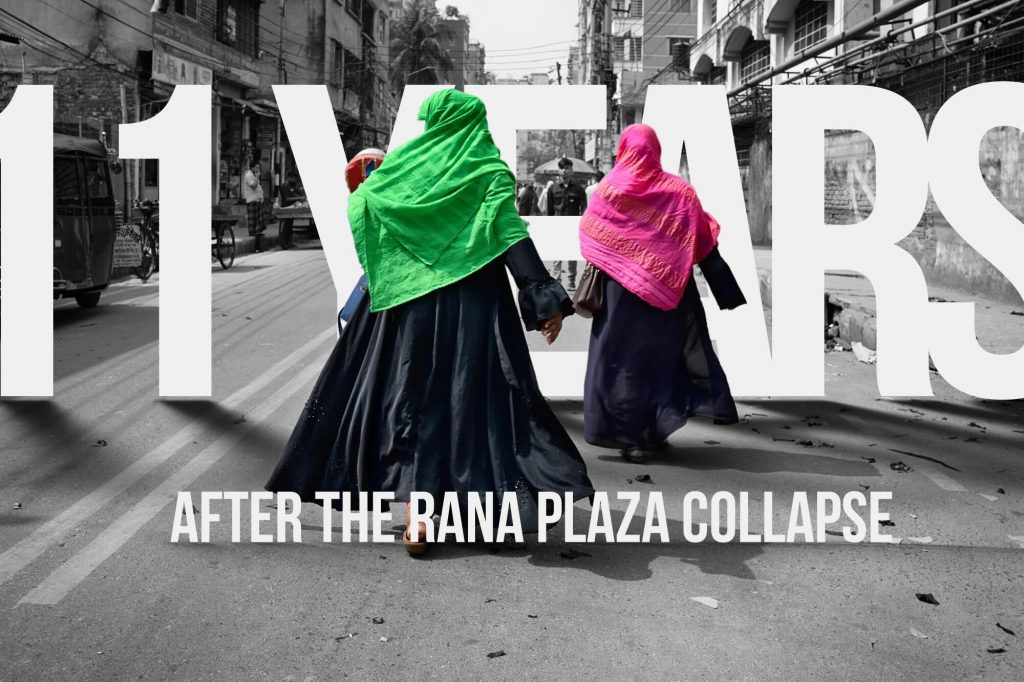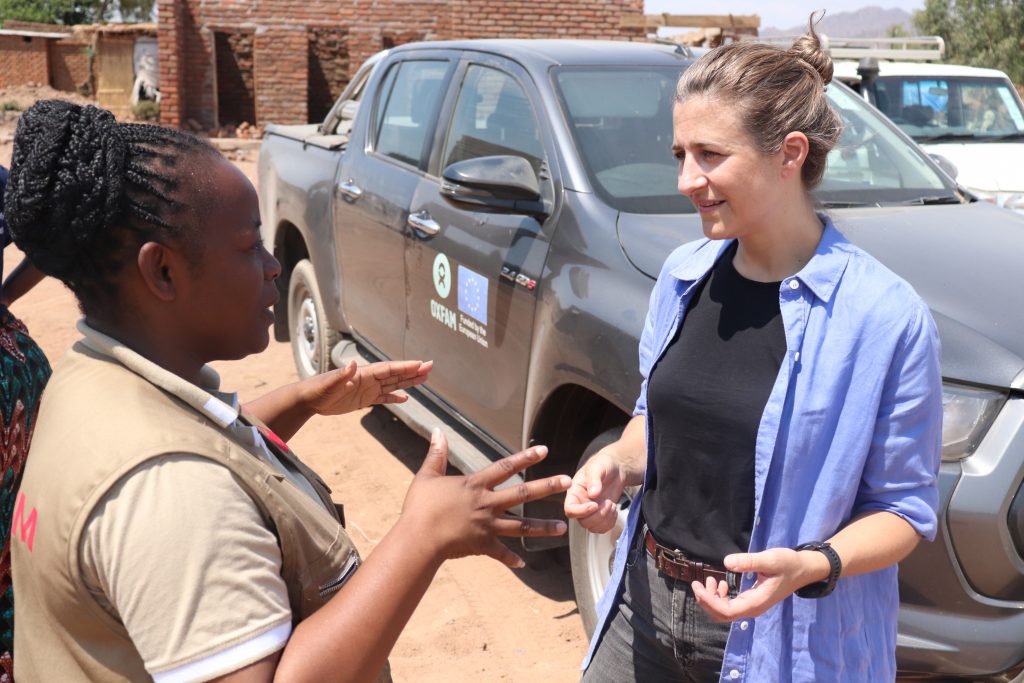How Oxfam Responds to Emergencies and How You Can Help
Whether responding to conflict, natural disasters like earthquakes or supporting people experiencing a hunger crisis, there are four things you should know about how we support communities when they need it most and how you can help.
When disaster strikes, we work with local humanitarian partners to immediately provide people with the assistance they need to survive, like food, clean water, sanitation facilities, hygiene products, shelter and protection. We stay in the long term and turn our efforts into the recovery and rehabilitation of communities.
Our key focus is ensuring that women’s perspectives and needs inform our humanitarian responses. We also advocate for local leadership in emergencies and work to shift power in the humanitarian system to local leaders, who often are women. Local leaders are best placed to respond to emergencies and rebuild their communities over the long term.
GIVE TO OUR EMERGENCY SUPPORT FUND
Your donation enables us to provide effective responses wherever and whenever it's most needed, without delay.
The Four Ways We Provide Support During Emergency and Humanitarian Situations
We recognize that local responders are often the best placed to help in emergencies. We work with governments, local organizations, and communities so that they are ready to respond to emergencies and able to cope when a crisis hits.
Our aid workers make sure people can get clean water and decent sanitation, like access to toilets, washing facilities, and adequate sewage disposal. They provide hygiene supplies like soap, toothbrushes, toothpaste and feminine products. They also help people in crisis get food and other essentials they need to survive.
Our humanitarian responses prioritize the needs of women and girls, as they're often discriminated against or have fewer resources to cope and recover from emergencies. We promote women and girls' safe and accessible use of our humanitarian programs. We also support women's organizations to lead in emergency preparedness, risk reduction and response.
Through long-term development, Oxfam and local partners stay well after the dust has settled to help rebuild communities to come back stronger from disaster. We support them in being better prepared to cope with shocks and uncertainties.
We also use our position on the global stage to call for long-term peaceful resolutions to hostilities that are ravaging lives. We advocate for meaningful change in policy and legislation, and call on governments to contribute to emergency appeals.
What Emergencies are We Responding to Now?
The Humanitarian Crisis in Türkiye and Syria After the Earthquakes
The scale of [the earthquake's aftermath] is daunting. The number of survivors who may be left now with absolutely nothing is likely to be huge.
In the early hours of February 6, a 7.8 magnitude earthquake and several aftershocks hit southern Türkiye and northern Syria. The death toll has surpassed 21,000 at the time of publication. The Turkish government reports at least 17,674 people have been killed, while at least 3,377 are known to have died in Syria. The toll could keep rising in the following days. Meanwhile, thousands of others are severely injured or trapped under the rubble.
Southern Türkiye has been heavily affected, especially areas around the cities of Gaziantep and Hatay/Antakya. These are major hubs for organizations supporting humanitarian operations in Syria.
In Syria, the cities of Aleppo, Latakia, Hama, and Idlib have been badly hit by the earthquake and continuous, severe aftershocks that have driven people into wintery streets, fearing further collapses of buildings. Survivors need shelter, food, water, fuel, and medical care.
This earthquake hits at a time when humanitarian needs in Syria are at its highest.
After 12 years of conflict, more than 90 per cent of Syrians live in poverty. More than 14 million people, out of a total population of 21.7 million, require humanitarian assistance. The UN's Humanitarian Response Plan for Syria, which aims to provide critical assistance to people in need, received US$6.7 billion. It was less than half of the total funding requirement for 2022.
Our Response
Oxfam and partner organizations are working tirelessly to support the people affected by these devastating earthquakes in the immediate and eventually in the longer-term.
Oxfam's affiliate in Türkiye, Oxfam KEDV, is working with local partners — around 80 women's cooperatives in 10 Turkish provinces most affected by the quake. An Oxfam team travelled on Tuesday, February 7, to affected areas to conduct assessments as part of Türkiye's official National Disaster Response Platform.
The short-term response will include water, sanitation services, shelter, and food delivery. Oxfam and local partners are looking ahead to support rehabilitation and reconstruction in the long-term.
Oxfam has been working in Syria for more than 30 years. Since the civil war erupted in 2011, the needs haven't changed — people need shelter, water, non-food items, medical support. But the earthquakes have changed the scale dramatically.
Our colleague Moutaz Adham, Oxfam Syria’s Country Director, speaks with @cbcnews about the urgent need to help survivors of the earthquake. #TurkeySyriaEarthquake
cc. @OxfamMENA @Oxfam @humcoalition pic.twitter.com/PZmP8ehTwC
— Oxfam Canada (@OxfamCanada) February 8, 2023
The Hunger Crisis in East Africa
In the 21st century, hunger should not exist. Famine does not happen unexpectedly. It comes after months of ignored warnings. We cannot afford acting with too little too late.
The countries least responsible for the climate crisis suffer most from its impact. Case in point are countries in East Africa. This region is experiencing several climate-fueled weather hazards simultaneously.
Large portions of Ethiopia, Kenya, and Somalia are suffering their worst drought in four decades, resulting in one person likely dying of hunger every 36 seconds. On the other hand, South Sudan is experiencing a fifth consecutive year of record floods, submerging around 70 per cent of the country and displacing 350,000 people.
Forecasters predicted in 2022, the lack of rain in the region will persist for a fifth consecutive season. Last year humanitarian aid funding fell short of what was needed. Food, fuel, and fertilizer prices continue to increase due partly to Russia's invasion of Ukraine. On top of it all, with Ethiopia, Somalia and South Sudan dealing with internal violence, East Africa is on the brink of a humanitarian disaster.
Our Response
Oxfam and regional partners are relentlessly working to reach around two million people across these four countries. We provide communities with cash transfers to buy essential food items. We also offer agricultural training on climate-resistant production and tools and seeds to strengthen farmers' resilience to climate change.
Since the hunger crisis in many East African countries is the result of prolonged drought, we're transporting water to remote communities and drilling wells to get clean water flowing. Many families rely on livestock for food, so we support livestock treatment and vaccination campaigns.
At camps where displaced people live, we train volunteers on protection issues related to gender-based violence. We also distribute solar lamps to protect women and girls at night.
LEARN MORE: What's Causing the Hunger Crisis in East Africa?
How You Can Help
Oxfam responds to multiple emergencies worldwide at any given time. Although the humanitarian challenges continue growing, so does our determination to live up to our commitment to save and improve lives and contribute to an equal future.
Actions You Can Take
- Support the people of southern Türkiye and northern Syria in the aftermath of the deadly earthquakes: We're collaborating with the Humanitarian Coalition to respond to the urgent call for international assistance, donate now.
- Support the people of East Africa: Stop extreme hunger, donate now.
- Give to our Emergency Support Fund: It enables us to provide quick and effective responses wherever and whenever the need is greatest. Assistance shouldn't be dependent on media coverage.
- Spread the word: You can support our emergency and humanitarian work by sharing this blog post with your friends and network on social media.
- Read our stories: Learn more about our efforts and the issues we work on.
Elena Sosa Lerín is a knowledge translation and communications officer at Oxfam Canada.
Support the people of Türkiye, Syria and East Africa. Give now to continue funding this life-saving work. Please donate what you can today.

